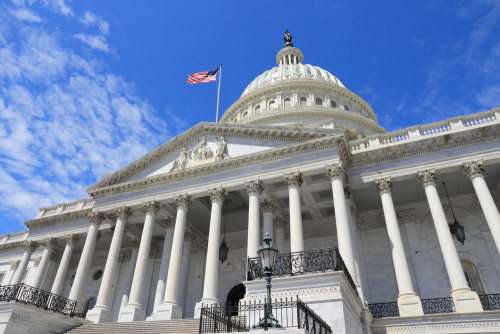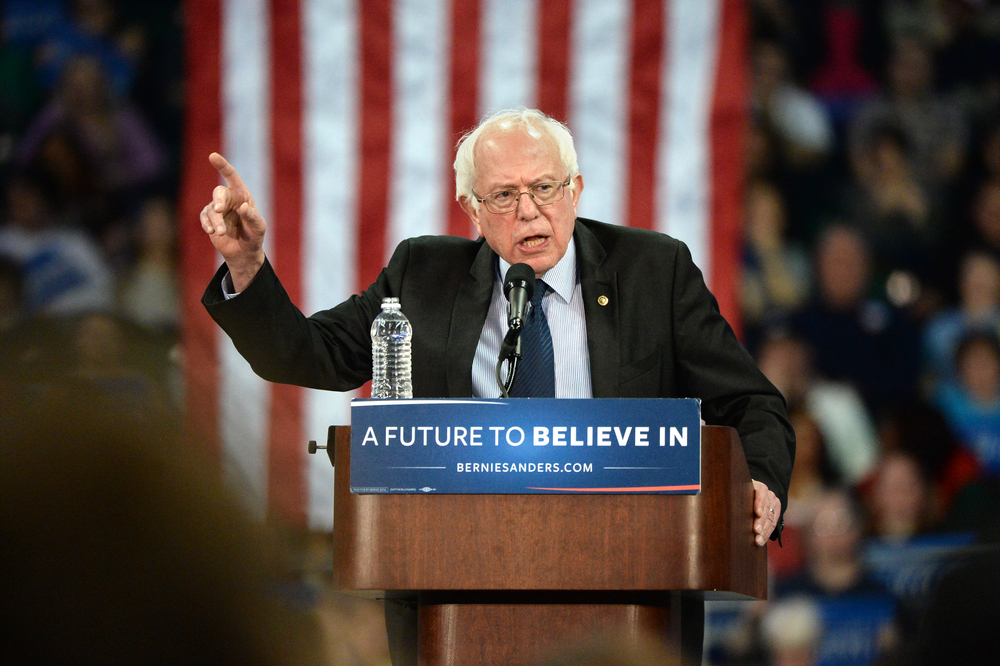Listen To Story Above
Global markets plunged into chaos Friday as nations worldwide grappled with the aftermath of President Donald Trump’s sweeping trade restrictions, while White House officials maintained their stance that America’s economy would ultimately triumph.
Markets across three continents experienced severe turbulence following Trump’s unexpected tariff announcement, with foreign governments expressing willingness to negotiate while simultaneously preparing retaliatory measures.
Thursday saw the S&P 500 suffer its steepest decline since 2020, falling 4.8%. The tech-heavy Nasdaq experienced an even more dramatic 6.0% drop, while the Dow Jones fell 4.0%.
In Asia, Japan’s Nikkei 225 tumbled more than 3% during Friday trading, prompting Prime Minister Shigeru Ishiba to characterize Trump’s sweeping tariffs as a “national crisis.”
The presidential decree imposed 10% import duties across all nations, with substantially higher rates targeting specific countries, including major trading partners China and the European Union.
The automotive sector faced additional pressure from a separate 25% tariff on all foreign-manufactured vehicles. Canada quickly countered with equivalent duties on American imports.
Markets are reacting to the dramatic change in the global order… as long as they know the rules they'll adjust
The President has concluded that the current status of global trade is bad for America and good for other countries, and he's gonna reset it
Marco Rubio explains… pic.twitter.com/wGeiTwQBti
— @Chicago1Ray 🇺🇸 (@Chicago1Ray) April 4, 2025
The impact was immediate in North America, where Stellantis, which controls major brands like Jeep, Chrysler, and Fiat, temporarily halted operations at select facilities in Canada and Mexico.
Brushing aside market concerns, Trump expressed confidence while departing for his Florida golf resort, predicting a future market boom.
During a Newsmax appearance, Vice President JD Vance minimized the significance of market volatility.
“I frankly thought in some ways it could be worse in the markets, because this is a big transition,” Vance said.
Trump defended his strategy as necessary to achieve American manufacturing independence, comparing the economic transformation to a medical procedure.
“It’s what is expected,” the 78-year-old president said of the market reaction. “The patient was very sick. The economy had a lot of problems.
It went through an operation. It’s going to be a booming economy. It’s going to be amazing.”
While Republicans voiced concerns about domestic price increases, Commerce Secretary Howard Lutnick urged Americans to trust the president’s judgment.
“Let Donald Trump run the global economy. He knows what he’s doing,” Lutnick said on CNN.
The harshest measures targeted what Trump termed “nations that treat us badly,” with China facing a combined 54% tariff rate after an additional 34% levy.
European Union members received a 20% rate, while Japan faced 24%.
Beijing demanded immediate tariff withdrawal and promised retaliation, as French and German officials suggested potential countermeasures against American technology companies.
President Donald Trump is destroying the global economy, according to the media, Democrats, Europeans, and libertarians. The stock market is crashing. His administration is randomly and arbitrarily imposing tariffs, they say. And his tariffs are on the verge of causing a… pic.twitter.com/1Qc6I2RQzp
— Michael Shellenberger (@shellenberger) April 4, 2025
French President Emmanuel Macron advocated suspending U.S. investments pending clarification of what he termed “brutal” tariffs.
IMF leader Kristalina Georgieva expressed concern about the tariffs’ impact on global economic stability.
Financial markets reflected the uncertainty, with gold reaching record highs, oil prices declining, and the dollar weakening against major currencies.
World Trade Organization chief Ngozi Okonjo-Iweala cautioned that the disruption could reduce “one percent in global merchandise trade volumes this year.”
Breaking from party lines, Republican Senator Mitch McConnell criticized the tariffs as “bad policy,” emphasizing the importance of international cooperation.
While Trump indicated openness to negotiations if offered favorable terms, the response from his administration remained firm.
Despite the EU and other nations seeking diplomatic solutions, White House spokesperson Karoline Leavitt emphasized on CNN that “this is not a negotiation.”
Lutnick reinforced this position with a stark warning: “You can’t really fight with the United States.
You’re going to lose. We are the sumo wrestler of this world.”






